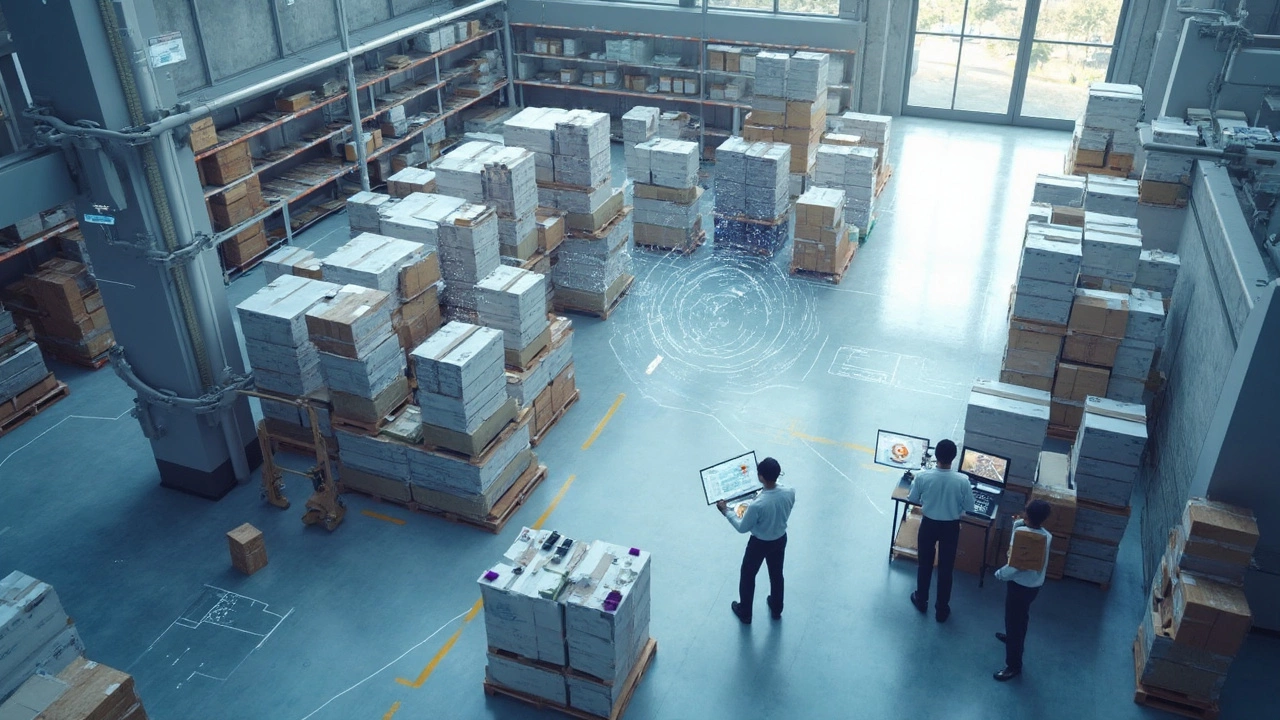In the world of logistics, FedEx is a big name you often hear. But when it comes to identifying them as a 3PL (Third-Party Logistics) or a 4PL (Fourth-Party Logistics) provider, things can get a bit tricky. So, what's the real deal? Let’s break it down.
Imagine 3PL as the company that gets your goods from point A to point B. They handle the transportation, maybe some warehousing, and basically make sure your package ends up on your doorstep. Traditionally, this is where FedEx started off, offering robust freight and parcel delivery services across the globe.
But as businesses evolved, so did FedEx. They've increasingly become what many would consider a 4PL provider—a step up in the logistics game. Instead of just moving boxes, they now integrate all aspects of the supply chain, bringing in tech-driven solutions and strategic management to ensure the entire process runs smoothly. They don't just deliver goods; they deliver end-to-end logistics solutions.
For companies, especially those operating on a global scale, understanding the distinction and capabilities of FedEx as either a 3PL or 4PL can influence how you leverage their services. It can mean the difference between needing to coordinate multiple service providers and having a single point of contact for all logistics needs, enabling businesses to focus more on growth and less on logistics.
Understanding 3PL and 4PL
Alright, let’s simplify things. When we talk about 3PL, or Third-Party Logistics, we're referring to service providers that handle a part of your logistical needs. Think about transportation, warehousing, picking and packing—these are classic 3PL duties. Basically, they manage the physical movement and storage of goods, which is essential for many businesses to streamline operations.
If you've ever ordered a product online and tracked the delivery, you were probably witnessing a 3PL in action. Companies like UPS, DHL, and yes, FedEx, serve primarily as 3PLs, handling these nitty-gritty logistics tasks.
What About 4PL?
Now, Fourth-Party Logistics—4PL—takes everything a step further. Instead of merely executing tasks, a 4PL provider manages and optimizes the entire logistics process. It acts more like a partner in managing your whole supply chain. This can include things like overseeing multiple 3PLs, using advanced logistics software to boost efficiency, and providing analytics for continuous improvement.
- Strategy and Management: 4PLs focus on strategic management of vendors and seamless integration of supply chain processes.
- Technology-Driven: 4PLs leverage technology—think AI and big data—to enhance logistics performance.
- Single Point of Contact: Rather than juggling multiple logistics providers, businesses often deal with just one entity.
This shift from 3PL to 4PL often means cutting down costs and making better use of resources. It's like upgrading from a rental car to a chauffeured limousine service that knows precisely where you need to go for a smooth ride without you lifting a finger.
Instead of just taking orders, a 4PL provides insights and suggestions, adapting to the unique needs of each client. For businesses, partnering with a 4PL can translate decisions into quicker actions and more data-driven strategies that are perfectly aligned with business goals.
FedEx as a 3PL
When it comes to Third-Party Logistics (3PL), FedEx has been in the game for quite a while. They handle the nuts and bolts of logistics, focusing predominantly on transport and distribution. If you've ever shipped a package, odds are you've used a bit of their 3PL magic already, whether it was through one of their couriers or freight services.
FedEx's extensive global network is one of its massive assets as a 3PL provider. They operate in more than 220 countries and territories, putting the world at your doorstep. Need to ship something from New York to New Delhi? FedEx makes that happen efficiently, showcasing their prowess in international freight services.
Besides just moving things, FedEx offers warehouse and distribution center solutions. With warehouses globally, they help businesses not only store products but also manage inventory in real-time. This can be a game-changer for businesses trying to keep overhead costs low while maintaining speedy delivery capabilities.
Key 3PL Services Offered
- Transportation: From small parcels to large freight, FedEx covers all bases with options such as air, road, and sea transport.
- Warehousing: Secure storage facilities that include storage and fulfillment solutions.
- Freight Forwarding: They offer solutions that involve consolidating shipments to reduce costs and simplify international shipping.
For firms that need the logistics grunt work done without having to invest in their own infrastructure, FedEx as a 3PL provider delivers reliability and flexibility. They allow businesses to focus on what they do best while FedEx handles the transportation part. It's the kind of partnership where you can almost take logistics worries off your plate.

FedEx's Move to 4PL
FedEx isn't just about getting packages from here to there anymore. They’ve shifted gears into new territories. Today, they’re stepping into the 4PL world, offering complete logistics solutions that involve managing the entire supply chain for their clients. Essentially, they’re becoming the one-stop shop for all logistics needs.
So, what does this mean? Well, when you think of FedEx now, it's not just a truck or a plane carrying your stuff. They’re integrating tech solutions to give businesses full visibility and control over their entire supply chain. Imagine being able to track and optimize every part of the logistics process—from sourcing supplies to delivering the final product.
Technology and Strategies
FedEx utilizes cutting-edge logistics software to offer strategic insights and management solutions. They focus on tech integration to manage complex supply networks smoothly. This means using real-time data to tackle delays, streamline inventory management, and even predict logistical hiccups before they happen.
For instance, FedEx’s SenseAware ID technology allows real-time tracking of items, providing clients with full situational awareness for critical shipments.
Benefits of 4PL for Businesses
One of the major perks of using FedEx as a 4PL is the comprehensive service. Businesses don’t need to juggle multiple partners for transportation, warehousing, and analytics. FedEx handles it all. This approach is especially beneficial for large-scale operations that need consistent and reliable logistic solutions.
In fact, according to industry trends, businesses utilizing 4PL services can boost operational efficiency by up to 15%. More streamlined operations with data-driven insights mean more time and resources to focus on the core business.
In short, FedEx isn’t just about packages anymore. It’s about integrating services that transform logistics from a logistical nightmare to a seamless, efficient process. Their move into the 4PL realm isn’t just a fancy upgrade; it’s a game-changer for businesses looking for that edge in supply chain management.
Benefits for Businesses
When it comes to harnessing the power of FedEx's logistics capabilities, businesses stand to gain quite a lot. One of the major perks of using FedEx as a 3PL or even 4PL provider is the sheer efficiency and reliability they bring to the table. These guys know what they're doing, and they handle your logistics so you can focus on what you do best.
Streamlined Operations
By leveraging FedEx's extensive network, businesses can enjoy streamlined operations. This means less hassle coordinating various supply chain elements because FedEx handles that seamlessly. With their robust logistics software, tracking, and inventory management, companies can reduce turnaround times and essentially, operate more smoothly.
Cost Savings
It’s not just about getting your goods from A to B; it’s also about doing it in a cost-effective manner. FedEx, with its economies of scale, can often provide logistics at a lower cost than a business could manage on its own. Plus, by outsourcing logistics, you save on staffing, tech investment, and infrastructure.
Here's a quick look at how costs can compare:
| Service | In-House Cost | FedEx Cost |
|---|---|---|
| Warehousing | $15,000/month | $10,000/month |
| Transportation | $30,000/month | $25,000/month |
Flexibility and Scalability
FedEx offers flexibility—whether you’re shipping a small batch or need to scale up quickly. Their systems are designed to accommodate fluctuations in demand, which means your logistics can scale with your business. How cool is that?
Tech-Driven Decision Making
With advanced logistics software, FedEx provides data-driven insights. This means businesses can make informed decisions about their supply chain operations, optimize routes, predict trends, and basically have a clearer view of their logistics landscape.
In short, by going with FedEx, businesses gain access to world-class logistics, savings, flexibility, and valuable insights—all vital for staying competitive in today's fast-paced market.


